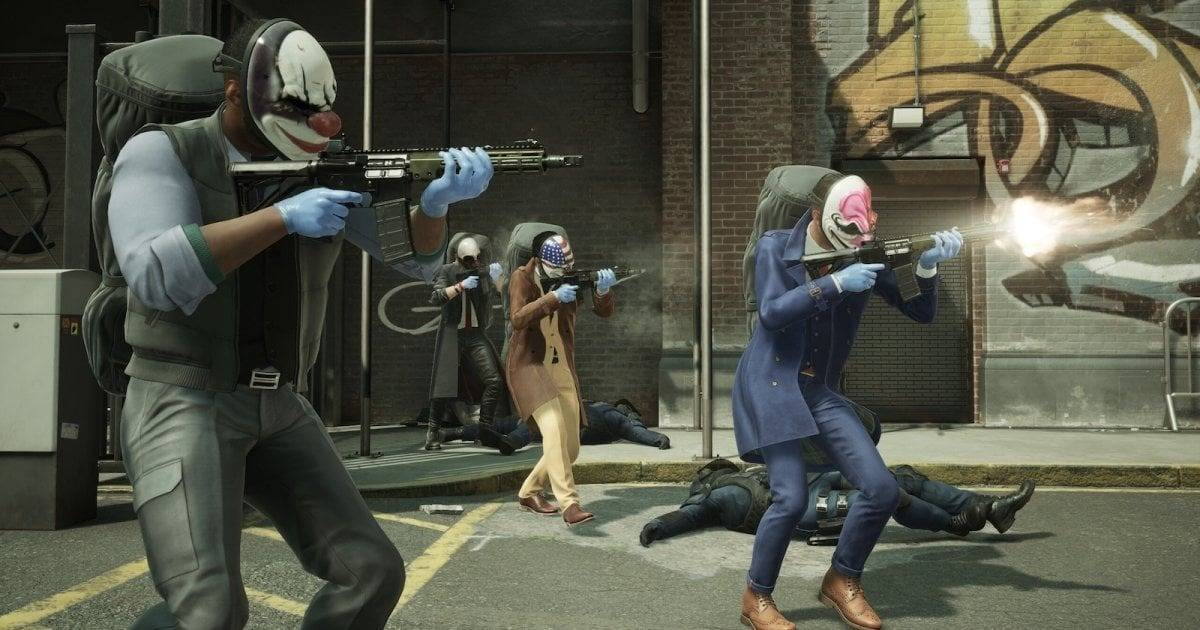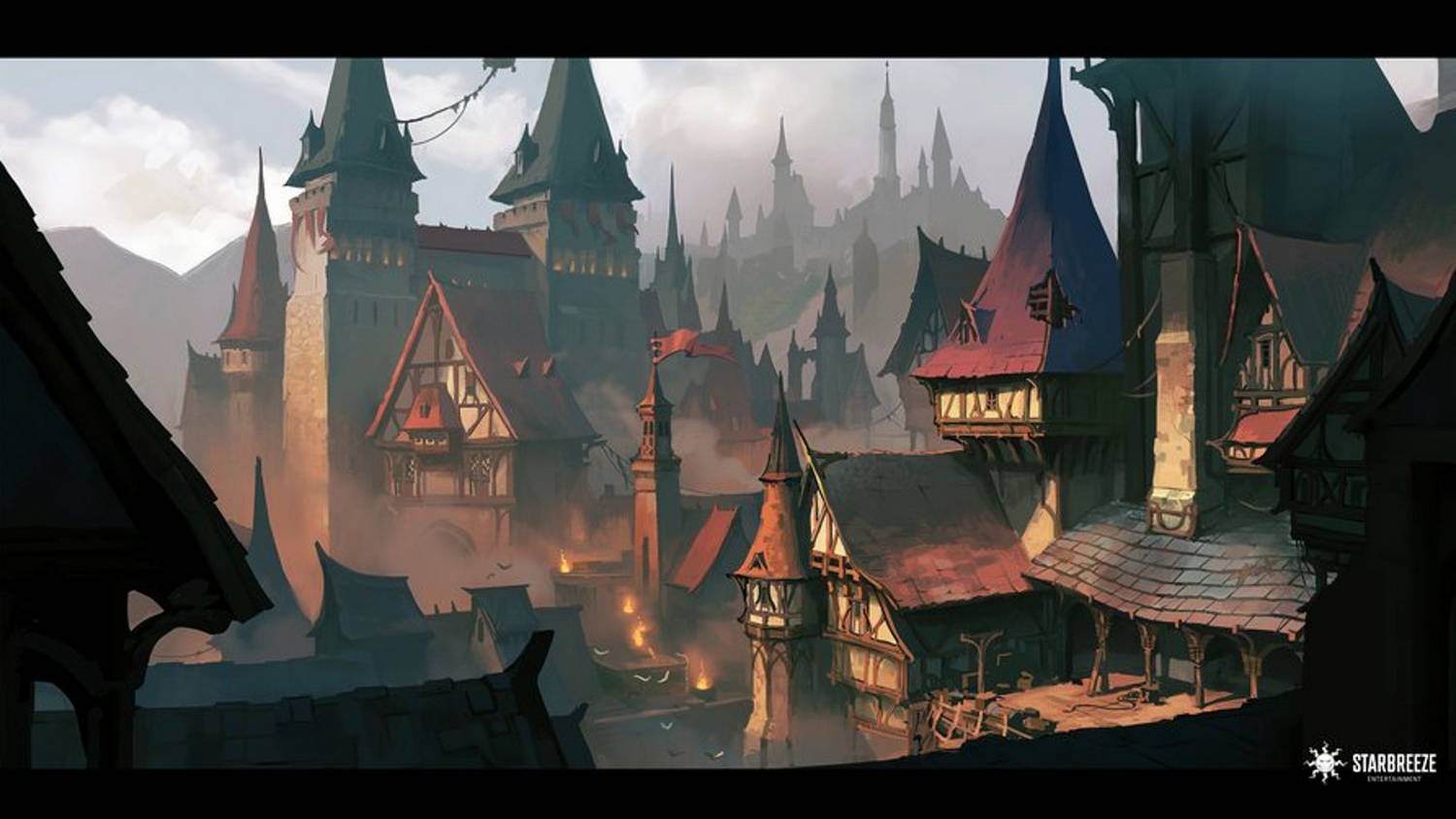STARBREEZE CANCELS D&D GAME ‘PROJECT BAXTER,’ ANNOUNCES 44 LAYOFFS IN MAJOR STRATEGIC PIVOT
Popular Now
 Roblox
Roblox
 Black Myth: Wukong
Black Myth: Wukong
 Sonic the Hedgehog™ Classic
Sonic the Hedgehog™ Classic
 League of Legends
League of Legends
 Gacha Club
Gacha Club
 Rust
Rust
 Geometry Dash
Geometry Dash
 Fortnite
Fortnite
 Call of Duty
Call of Duty
 Poppy Playtime
Poppy Playtime  Stockholm-based developer Starbreeze Studios, the studio behind the popular Payday franchise, has announced a dramatic restructuring, confirming the cancellation of its in-development Dungeons & Dragons co-op game, codenamed “Project Baxter.” This decision, effective immediately, is coupled with the painful news of layoffs affecting approximately 44 employees and contractors, underscoring a severe strategic focus shift back to their flagship Intellectual Property (IP), Payday.
Stockholm-based developer Starbreeze Studios, the studio behind the popular Payday franchise, has announced a dramatic restructuring, confirming the cancellation of its in-development Dungeons & Dragons co-op game, codenamed “Project Baxter.” This decision, effective immediately, is coupled with the painful news of layoffs affecting approximately 44 employees and contractors, underscoring a severe strategic focus shift back to their flagship Intellectual Property (IP), Payday.
The move comes after a comprehensive strategic review by the Board of Directors, which concluded that company resources are “best deployed to accelerate the growth of Starbreeze’s flagship Payday franchise.” The immediate consequence is a substantial non-cash impairment of approximately SEK 255 million (about $27.2 million USD) related to the capitalized development costs of the canceled project. This financial write-down reflects the significant investment already poured into the ambitious title.
 The Fate of ‘Project Baxter’ and Financial Realities
The Fate of ‘Project Baxter’ and Financial Realities
Project Baxter was unveiled in 2023 and was slated for a 2026 release. It was planned as an Unreal Engine 5 co-operative multiplayer game set in the rich Forgotten Realms of the Dungeons & Dragons universe, promising a Games as a Service (GaaS) model—a clear attempt to diversify Starbreeze’s offerings beyond the successful heisting genre. The game aimed to blend the studio’s expertise in co-op action with a completely new fantasy setting.
However, the company’s recent financial performance, particularly following the highly-anticipated but rocky launch of Payday 3 in 2023, appears to have necessitated a course correction. While Payday 3 has seen a turbulent post-launch period with server issues and criticism over progression systems, Starbreeze views the Payday IP as their most iconic and financially viable asset, offering the clearest path back to cash-flow positivity.
Starbreeze CEO Adolf Kristjansson framed the cancellation as a “difficult but necessary decision” to sharpen the company’s focus and create the strongest long-term value. “By concentrating our efforts on Payday we give Starbreeze and all our employees the best chance to succeed,” Kristjansson stated, emphasizing the goal to return to being cash-flow positive in 2026.
 Impact on Staff and the Future of the ‘Payday’ Franchise
Impact on Staff and the Future of the ‘Payday’ Franchise
The cancellation of Project Baxter has an immediate and painful human cost. The layoffs will affect approximately 44 individuals, encompassing both full-time employees and contractors. While some developers from the Baxter team will be strategically redeployed to other internal projects, “most prominently within Payday,” the majority of the team face the reality of redundancy.
The studio has pledged to provide active support for the affected employees to transition to new roles across the industry, but this news adds to the ongoing trend of large-scale job cuts sweeping the video game sector globally, often cited under the guise of “strategic realignment” or cost-reduction measures to boost shareholder value.
The Doubling Down on Heisting:
Starbreeze’s updated strategy is explicitly focused on “doubling down” on the heisting genre and the Payday franchise. Key elements of this future direction include:
- Accelerated Payday 3 Roadmap: The company promises more frequent and robust updates for Payday 3, intending to transform it into a “modern live-engagement platform.” The Payday 3 development team is planned to expand to approximately 50 employees by the end of 2025.
- Franchise Expansion: Beyond the core titles, Starbreeze plans to explore “new games and experiences that broaden the heisting genre,” including potential spin-offs and the expansion of the IP to new platforms.
- Work-for-Hire Contracts: The studio will also continue to undertake work-for-hire jobs to supplement revenue streams, a common strategy for studios navigating financial pressures.
The remnants of the work done on Project Baxter, including technology and creative concepts, are expected to be carried forward into the future development of the Payday franchise and other Starbreeze projects. The successful co-op elements and GaaS-model experience gained from the canceled D&D title will likely inform the renewed push to stabilize and grow the Payday ecosystem.
The decision to abandon a licensed AAA project like Project Baxter in favor of a full commitment to an owned IP like Payday is a clear, if brutal, reflection of the current industry-wide economic climate and the necessity for studios to focus on core competencies to ensure long-term financial stability and maximize return on investment (ROI).
The question for investors and players now is whether the increased focus on Payday can quickly translate into the high-quality, continuous content required to mend player trust and secure the financial future of Starbreeze.







 The Fate of ‘Project Baxter’ and Financial Realities
The Fate of ‘Project Baxter’ and Financial Realities Impact on Staff and the Future of the ‘Payday’ Franchise
Impact on Staff and the Future of the ‘Payday’ Franchise